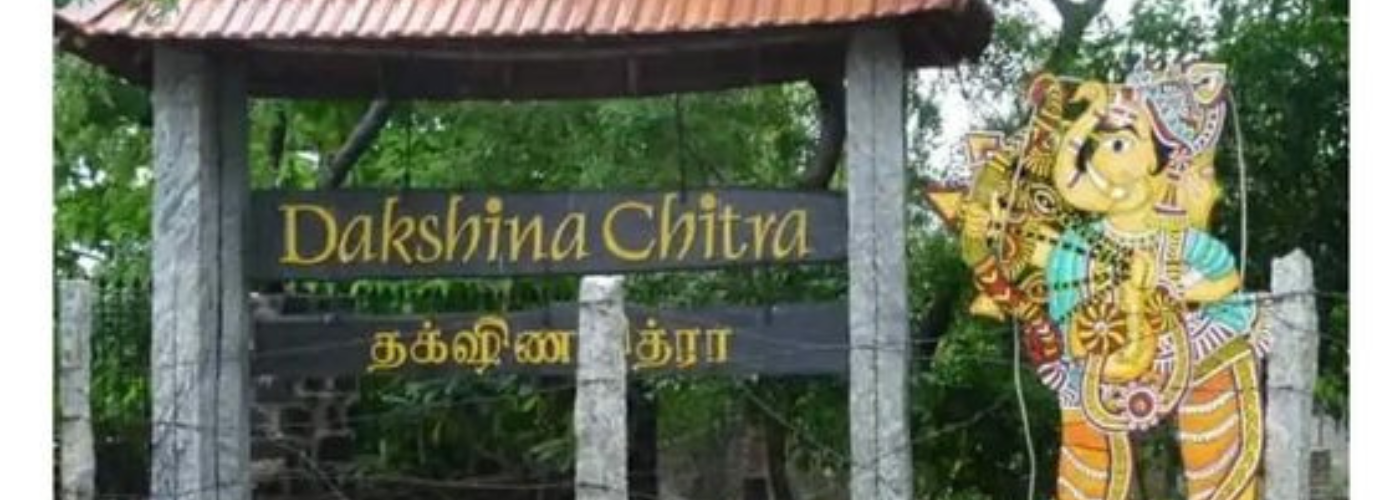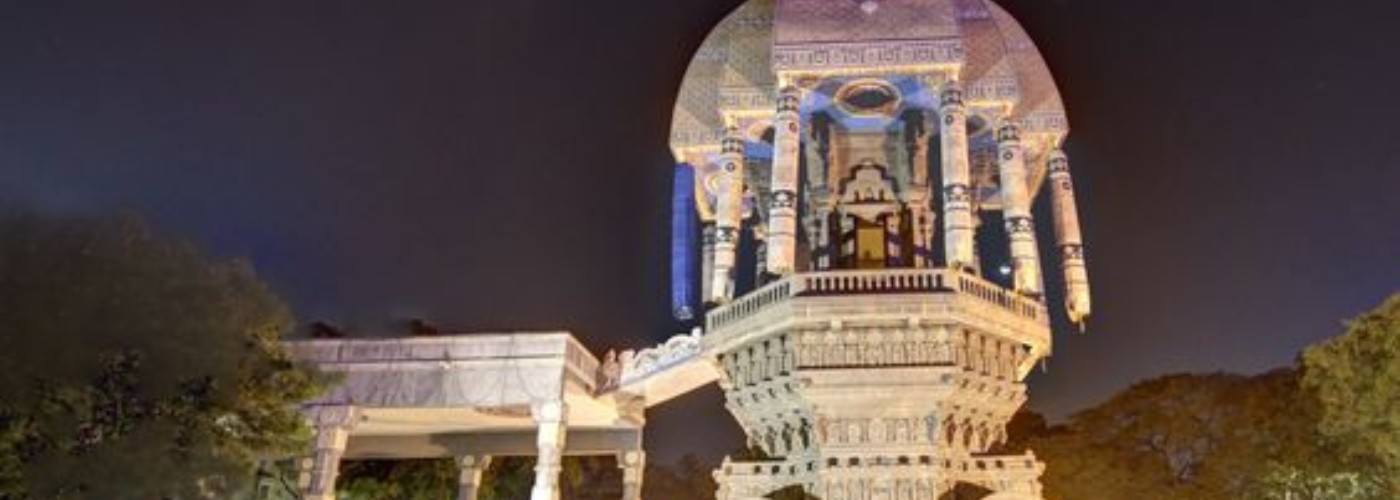

DakshinaChitra: A Journey into South India’s Rich Cultural Heritage
Located along the scenic East Coast Road near Chennai, DakshinaChitra is a living museum that offers a unique window into the vibrant traditions, architecture, and lifestyle of South India. Designed as a cultural village, DakshinaChitra celebrates the diverse and rich heritage of the four southern states: Tamil Nadu, Kerala, Karnataka, and Andhra Pradesh. It is a must-visit destination for travelers and culture enthusiasts alike who are looking to explore the deep-rooted traditions of this region.
Preserving Tradition Through Architecture and Art
Established in 1996 by the Madras Craft Foundation, DakshinaChitra is spread across 10 acres of land and is dedicated to preserving and promoting South Indian culture. The museum features authentic replicas of traditional homes from various regions, meticulously reconstructed to provide visitors with an immersive experience of the architectural styles unique to South India.
Each home tells a story of the region it represents, from the intricately carved wooden houses of Kerala to the agraharams (Brahmin streets) of Tamil Nadu. Walking through these homes offers a glimpse into the daily lives of people from different communities, showcasing their art, craftsmanship, and way of living.
In addition to the architecture, DakshinaChitra also highlights various forms of traditional art, craft, and folklore. The museum regularly hosts exhibitions of local artisans, bringing to life traditional crafts like pottery, weaving, and painting. Visitors can interact with the artisans, watch live demonstrations, and even purchase handmade items to support local craftsmanship.
A Cultural Hub for Art and Performances
DakshinaChitra goes beyond architecture by embracing South India’s performing arts, hosting regular performances of classical dance forms such as Bharatanatyam and Kathakali, as well as traditional folk dances and music. These performances provide a vibrant and interactive way to experience the rich cultural heritage of the region.
Workshops and interactive programs are also a vital part of the museum’s offerings. Visitors, both adults and children, can participate in hands-on workshops to learn about pottery, puppet-making, kolam (rangoli), and more. These activities foster a deeper connection with South Indian culture, making DakshinaChitra a family-friendly destination.
A Window into Diverse Cultures
What sets DakshinaChitra apart is its focus on the diversity of South Indian culture. The museum is divided into sections representing Tamil Nadu, Kerala, Karnataka, and Andhra Pradesh, each featuring the distinct architectural, artistic, and craft traditions of that state. For example, in the Kerala section, visitors can explore a typical tharavad house, complete with an inner courtyard and traditional woodwork, while the Tamil Nadu section highlights the Chettinad mansions known for their intricate designs.
Each exhibit provides insight into the rituals, festivals, and social structures of different communities. The attention to detail in replicating traditional homes and lifestyles ensures that visitors get an authentic experience of South Indian heritage.
A Learning and Cultural Experience
DakshinaChitra is not only a place to observe but also a place to learn. Its educational programs cater to students, researchers, and anyone with an interest in understanding the roots of South India’s cultural practices. With a rich collection of historical objects, artifacts, and documentation, the museum serves as an important resource for those interested in the history and evolution of South Indian traditions.

Valluvar Kottam: A Monument to Tamil Heritage in Chennai
In the heart of Chennai stands Valluvar Kottam, a grand monument dedicated to one of Tamil Nadu’s greatest literary figures, Thiruvalluvar. Known for his timeless work, the Thirukkural, a collection of 1,330 couplets that delve into ethics, politics, love, and everyday living, Thiruvalluvar’s contribution to Tamil literature and culture is unparalleled. Valluvar Kottam serves as both a tribute to his genius and a symbol of Tamil pride.
The Architectural Splendor of Valluvar Kottam
Valluvar Kottam is not just a monument, but an architectural marvel that reflects the rich heritage of Tamil Nadu. Inaugurated in 1976, it was built by the then Chief Minister of Tamil Nadu, M. Karunanidhi, to honor the revered poet-saint. The structure is unique in its design, as it takes the form of a giant stone chariot modeled after the temple chariots seen in traditional South Indian festivals. The chariot rests on wheels and is adorned with intricate carvings that showcase the craftsmanship of local artisans.
The most striking feature of Valluvar Kottam is the massive 66-foot statue of Thiruvalluvar that stands at the center of the chariot. The statue is a powerful representation of the poet’s lasting influence and his importance to Tamil culture. Visitors can climb a few steps to view the statue up close, providing a sense of awe and reverence for this iconic figure.
The Thirukkural Hall: An Ode to Wisdom
One of the key attractions of Valluvar Kottam is the Thirukkural Hall, a spacious auditorium that can seat around 4,000 people. The hall is a hub for cultural events, public gatherings, and exhibitions, making it a vibrant space that promotes Tamil literature, arts, and tradition. The most remarkable aspect of the hall, however, is that the entire text of the Thirukkural is inscribed on its walls. All 1,330 couplets, written in classical Tamil, are displayed for visitors to read and reflect upon, making it a treasure trove for anyone interested in the wisdom of Thiruvalluvar.
The inscriptions cover a wide range of topics, from ethical behavior and personal conduct to political governance and human relationships. Each couplet, though brief, is filled with profound meaning, offering visitors an opportunity to engage with the timeless teachings of the Thirukkural.
A Cultural and Educational Landmark
Valluvar Kottam is more than just a tourist attraction; it is a center for cultural and educational activities. The monument regularly hosts events that celebrate Tamil language, literature, and art, making it an important venue for local cultural festivals and educational programs. School groups, researchers, and history enthusiasts frequent the site to learn more about Thiruvalluvar’s contributions and the historical context of the Thirukkural.
For those unfamiliar with Tamil culture, Valluvar Kottam serves as an introduction to the richness of Tamil literature and the enduring legacy of its ancient texts. It provides an opportunity to explore the ethical and philosophical teachings that have shaped Tamil society for centuries.
A Symbol of Tamil Identity
Valluvar Kottam stands as a symbol of Tamil identity and pride, highlighting the region’s commitment to preserving its linguistic and cultural heritage. It serves as a reminder of the importance of language, literature, and moral teachings in shaping the values of a society. Thiruvalluvar’s work, which transcends time and space, is a source of inspiration for people from all walks of life, and Valluvar Kottam brings that inspiration to life in a tangible, monumental form.